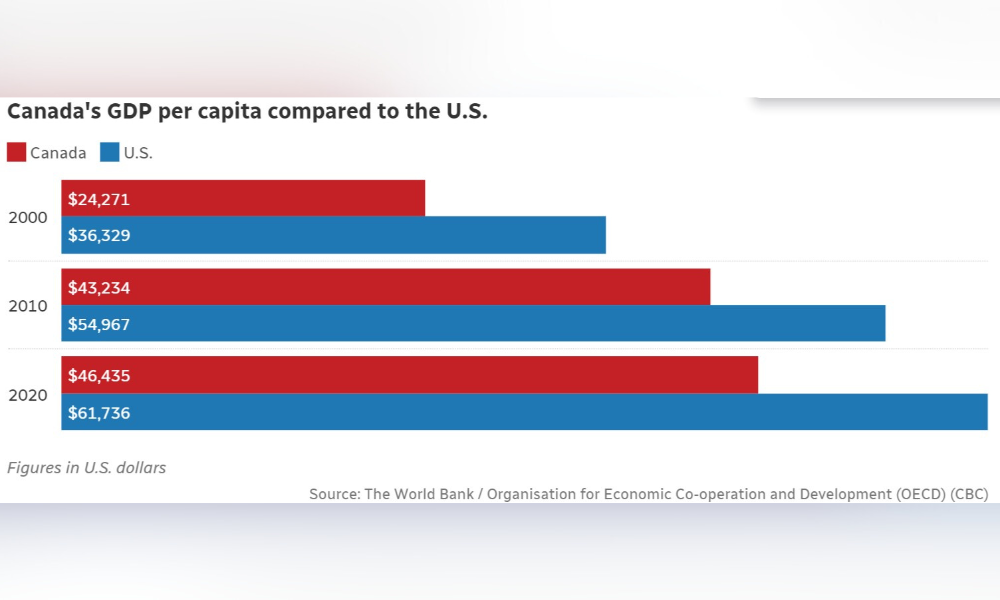
'We need less temporary migration, we need less foreign students and probably less foreign workers in low-skilled categories,' says expert citing OECD report

The effect of the boom in the number of temporary foreign workers coming into Canada is starting to show, according to one expert.
While Canada remains one of the richest countries in the world, its standing among wealthy countries is taking a hit, according to a CBC report citing data from the Organisation for Economic Co-operation and Development (OECD).
"Relative to other countries, we're getting collectively poorer," said Paul Beaudry, who served as deputy governor of the Bank of Canada from 2019 and 2023 and is now a professor at the Vancouver School of Economics at UBC. "And it's not only relative to the U.S., it's relative to a lot of other countries. We're in the laggard group."
By the third quarter of 2024, Canada had a GDP of 1.3%, down from 2.1 in the last quarter and 1.8 in the first quarter of the year, reported CBC, citing data from TD Bank. Meanwhile, GDP per capita dropped to -1.37, from -0.84 in the second three quarters of the year and -1.15 in the quarter prior.
"Growing GDP per capita allows us to be richer and have all the things we want more of, like public services, health care and education. And we're falling behind," Beaudry said in the CBC report.
"That gap between us and the United States is not just large today. It has been widening at a pace that we haven't seen in generations," said Trevor Tombe, a professor of economics at the University of Calgary, in the CBC report.
“As that gap grows, more and more Canadians have an incentive to move to the U.S. for better economic opportunities and a higher standard of living," he said. Doctors and tech workers may be among the first to go, he added.
The labour productivity of Canadian businesses dropped in the second quarter of 2024, according to a report from Statistics Canada (StatCan).

Source: CBC
Canada's lax immigration policy in the post-COVID period is making the country poor, said Beaudry in the CBC report.
Canada is "overburdened" with newcomers and it's hard to integrate so many people – particularly low-wage, low-skilled workers – into the economy in such a short period of time.
Effective Sept. 26 this year, Ottawa will refuse to process Labour Market Impact Assessments (LMIAs) in the low-wage stream under the Temporary Foreign Worker (TFW) Program in census metropolitan areas with an unemployment rate of 6% or higher.
There would be some short-term improvement to the GDP per capita figures if Canada limited the number of temporary foreign workers in the country, said Beaudry.
However, the bigger problems are that Canada corporate competition in the country is “virtually nonexistent” in some sectors and that big firms spend less on technology and upgrading workers' skills, he said.
These things could boost productivity and improve national wealth, said Beaudry.
Meredith said the government needs to find ways to encourage corporate Canada to spend more and unlock some of the "dead money" they have sitting on their balance sheets but don't use.